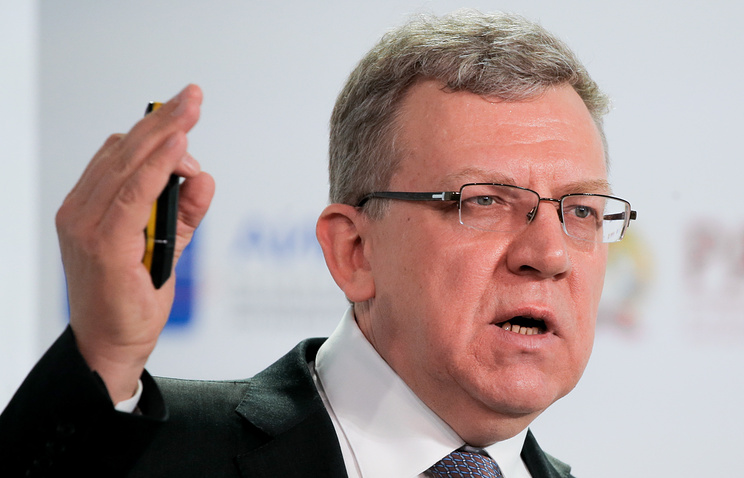If systemic reforms are carried out in Russia the country’s economic growth rates can exceed 3% by 2019 and 4% by 2022, Chief of the Center for Strategic Research (CSR) Aleksei Kudrin said Friday.
“I project potential economic growth rates in case of systemic institutional and structural reforms of more than 3% (GDP growth) by 2019 and more than 4% by 2022,” he said.
According to Kudrin, CSR’s targeted scenario implies a 2-fold increase of the country’s GDP by 2035, while the ‘no change’ scenario only implies a 1.5-fold growth in the period.
“Though I think that in this case the ‘no change’ scenario is less realistic with regards to the fact that the failure to carry out certain reforms earlier can challenge our presence on the global markets, including hydrocarbons, and weaken our positions there,” ex-minister added.
“We are facing very serious challenges objectively impeding our economic growth. Steps to be taken by the nation, the government and the president are unconventional and fairly important. Firstly, these are demographic challenges, shortage of investments, including the problem of sanctions, our separation from global finance markets, technology gap, low productivity and poor quality of public management,” Kudrin said.
The government is not undertaking decisive measures making possible to launch the new economic model, he added.
Inflation
Kudrin added inflation should slow down to 2-2.5% over midterm. “The key element of the monetary policy is the goal to keep inflation below 4%. Out today’s target is 4% for the next three years, though we need to lower it to 2-2.5% over midterm already,” he said, adding that this will help “reduce the cost of the country’s resources and provide the basis for long money.”
Lack of reforms can reduce Russia’s presence on global markets, including hydrocarbons, Kudrin went on, adding that share of non-resource, non-energy goods in Russian export will be over 50% in 15 years.
Technological inferiority
Kudrin believes technological inferiority is the most serious challenge for Russia for 10-15 years.
“We’re facing a technological inferiority issue, which is the most serious challenge we have for the nearest 10-15 years,” he said, adding that it will result in “squeezed technological potential and worsening quality of life due to missing markets.”
According to Kudrin, there are almost no banks and oil producers among the world’s top ten most capitalized companies, with firms related to information, technology, pharmacy and others involved in cutting-edge technologies being among global leaders.
Large agglomerations
Kudrin said Russia needs to create 10-15 large agglomerations as an alternative to Moscow and St. Petersburg.
“Only two cities in Russia can compete with leading cities of the globe by quality of life. The youth in the region do not believe they are living in a modern country and that the modern quality of life can only be achieved by relocation to Moscow. We should create 10-15 urban agglomerations in the territory of Russia, which will be comparable with Asian competitors in the east of the country and with European competitors in the West,” Kudrin said.
